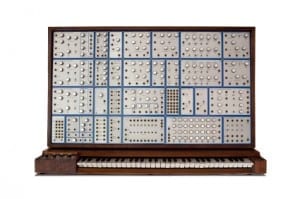The Importance of Patent 3475623 (A Celebration of Robert Moog's Influence on Modern Recording)
You may not have heard of Patent 3475623, or even it’s more layman's name: the Ladder Filter. But you’re almost guaranteed to have heard its work. More specifically, the invention by Robert Moog became the basis for his Moog Synthesizer, which was first introduced to the public in the mid-1960s. It was also used in the popular Minimoog, and forms the basis of nearly all instruments we think as modular synthesizers today.

The invention is considered so remarkable outside music circles that Moog will be inducted into the National Inventors Hall of Fame this year for his accomplishment. With the sounds he produced so ubiquitous on recordings from the 1960s until today, we thought it was a great time to look at Moog, his synthesizers and how they’ve changed the musical landscape where we record.
A synth is just a synth?
It should be pointed out to begin with that the word synthesizer has a much wider definition than just instruments like those created by Moog, as well as a much longer history (depending on your definition of synthesizers, electric organs and other electronic instruments can be considered part of the category).
However, we want to focus on the sounds produced by Moog’s machines, which were made possible by the Moog Ladder Filter. These sounds have become synonymous with what we think of as synthesizers today, and are more specifically known as modular synthesizers. Moog didn’t invent them, but he is credited with making the first commercially available modern synthesizer, and his patented filter is the building block of the sound of his instrument. We won’t get into the deep technical aspects of what Moog patented with the ladder filter -- after all, it’s the sounds that are intriguing. However, the official Moog website offers a great summary of the technology used in its announcement of the HoF induction:
“Using the new properties provided by transistors, the Ladder Filter was the first voltage controlled filter. By using voltage control such as keyboards and envelopes to steer the harmonic content of music over time, the Ladder Filter allowed new ways of manipulating sound that became part of the basic grammar for a new vocabulary of musical expression.”
Why Synth Use is So Widespread
The aforementioned announcement from Moog may also contain a bit of insight into why the ladder filter was so successful, and why it and its derivatives are still used today.
“The Ladder Filter allows the organic movement of sound in such a way that people can not only hear its warmth, but also feel its sweep come to life,” reads the announcement. And while that’s certainly a little biased, it’s strange to see the word warmth used in conjunction with such electronic technology -- but it’s also true.
After the Moog Synthesizer was introduced, other models by other companies were built, and Moog also released the extremely popular Minimoog in 1970 as a portable model designed to be played live.
All these similar machines saw plenty of use throughout the decade and beyond, from prog rock to disco. It’s hard to imagine 1980s music without these synth sounds, and as mentioned above they continued to be used today.
Now, of course, it’s much easier to dial in the sounds into recording software and control them with a simple MIDI keyboard than it was to use the relatively large original Moog. However, the latter still gets used in recording studios, as well. It’s not just vintage tube amps engineers pine for, electronic music has a glory day’s era, too. Much of that is thanks to Robert Moog.




